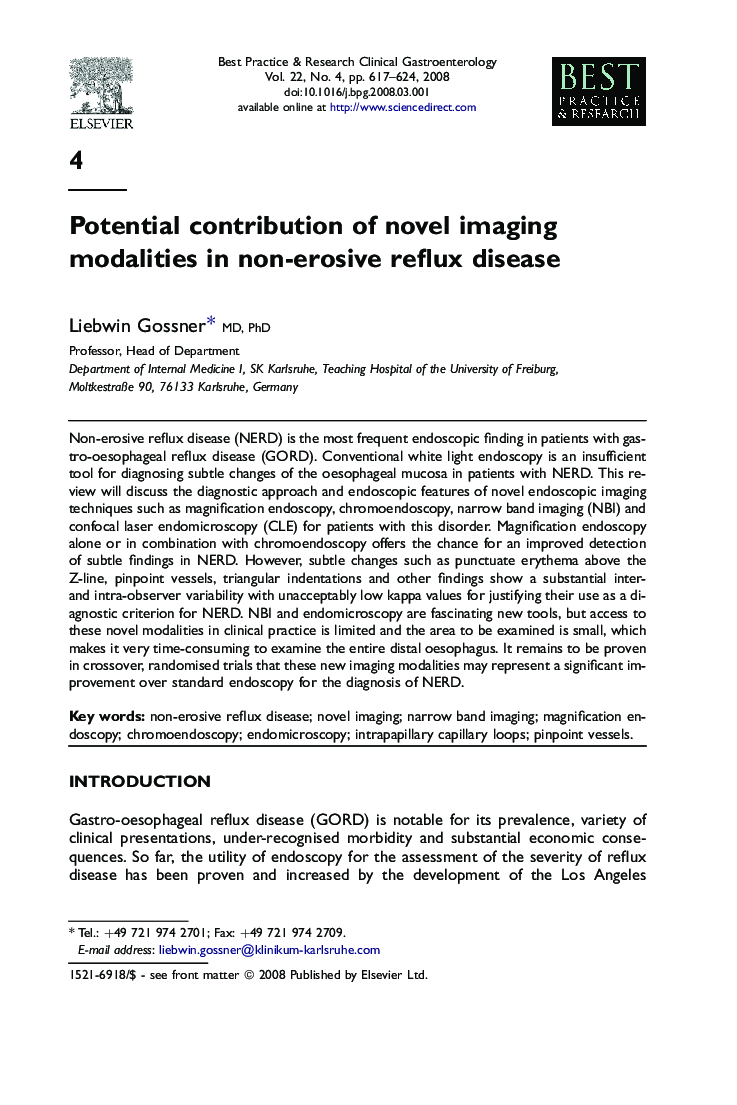| Article ID | Journal | Published Year | Pages | File Type |
|---|---|---|---|---|
| 3254676 | Best Practice & Research Clinical Gastroenterology | 2008 | 8 Pages |
Non-erosive reflux disease (NERD) is the most frequent endoscopic finding in patients with gastro-oesophageal reflux disease (GORD). Conventional white light endoscopy is an insufficient tool for diagnosing subtle changes of the oesophageal mucosa in patients with NERD. This review will discuss the diagnostic approach and endoscopic features of novel endoscopic imaging techniques such as magnification endoscopy, chromoendoscopy, narrow band imaging (NBI) and confocal laser endomicroscopy (CLE) for patients with this disorder. Magnification endoscopy alone or in combination with chromoendoscopy offers the chance for an improved detection of subtle findings in NERD. However, subtle changes such as punctuate erythema above the Z-line, pinpoint vessels, triangular indentations and other findings show a substantial inter- and intra-observer variability with unacceptably low kappa values for justifying their use as a diagnostic criterion for NERD. NBI and endomicroscopy are fascinating new tools, but access to these novel modalities in clinical practice is limited and the area to be examined is small, which makes it very time-consuming to examine the entire distal oesophagus. It remains to be proven in crossover, randomised trials that these new imaging modalities may represent a significant improvement over standard endoscopy for the diagnosis of NERD.
